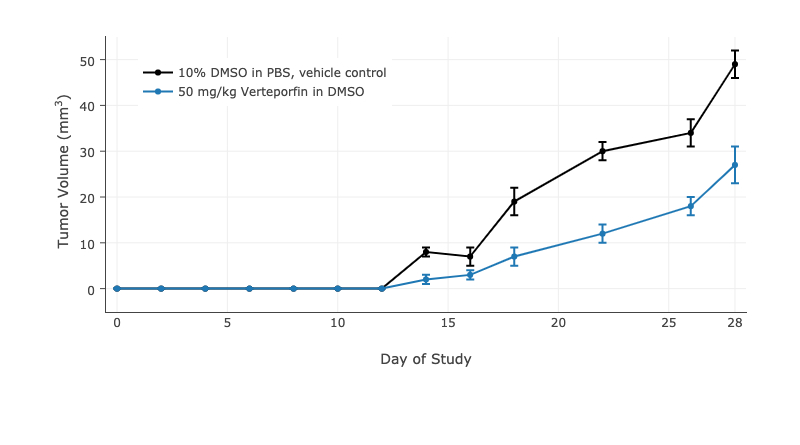VERTEPORFIN INHIBITS TUMORIGENESIS IN AN ORGANOID MODEL OF COLITIS-ASSOCIATED CANCER
Reece K. DeHaan*, Robert Fisher, Brian McCue, Emina Huang
Cleveland Clinic, Cleveland, OH
Background. Colitis-associated cancer (CAC) is a form of inflammation-associated adenocarcinoma for which the precise etiologic drivers are unknown. Patients with chronic inflammatory bowel disease, especially ulcerative colitis, are at increased risk for the development of CAC. Repeated colitic attacks result in fibrosis and increased stiffness, which are 'cancers until proven otherwise'. The mechanotransducing Hippo pathway, and its dominant effector, Yap1, have been associated with fibrosis in colitis, and the development of metastatic colon cancer. We hypothesized that Yap1 would be an effector in a primary organoid model of CAC tumorigenesis.
Methods. First, the sporadic colon cancer cell line, HCT116, was examined. Primary CAC epithelial organoids were derived from patient-derived tissues. Isolates were maintained and propagated in Matrigel beads. Cultures were confirmed as mycoplasma-free and unique using short-tandem repeat (Genetica). Immunoblotting confirmed the presence of Yap1 in the isolates. Inhibition of the Yap1-TEAD interaction was affected using verteporfin.
To define whether Yap1 inhibition would influence CAC tumorigenesis, in vivo subcutaneous xenografts consisting of the CAC organoids were initiated using 10,000 cells into the flanks of NOD-SCID IL2 Υ receptor null immunocompromised mice. Inhibition of tumorigenesis with verteporfin (50 mg/kg) vs. control (PBS/DMSO) was initiated intraperitoneally beginning on day 3 post engraftment (N = 10/group). Tumor sizes were measured every 2-4 days with calipers beginning at 2 weeks post engraftment. Volume measurements were calculated utilizing the formula (length*width2)/2.
Results. Yap1 was present both in the sporadic colon cancer cell line, HCT116, and in the CAC organoid line per immunoblotting. Verteporfin diminished the expression of Yap1 in a dose-dependent manner (Figure 1). In parallel, inhibition of in vivo tumorigenesis was demonstrated using longitudinal regression modelling utilizing the open-source TumGrowth tool (p<0.0001) (Figure 2).
Conclusion. Colitis-associated cancer epithelial organoids phenocopy primary traits of CAC, including the presence of Yap1. The pathway may be mitigated via the use of the drug, verteporfin both in vitro and in vivo. These organoids may serve as avatars for precision medicine for these poorly understood cancers.
Figure 1. CAC Organoid Western Blot. CAC Organoids were treated either with PBS/DMSO vehicle control or varying concentrations of Verteporfin for 24h. n=3 per condition. t-test used for significance (*=p<0.05)
Figure 2. CAC Organoid Tumor Growth Curve. Tumor Volumes of subcutaneous flank injections of CAC organoids treated with either Verteporfin or DMSO/PBS vehicle control.
Back to 2021 Abstracts
